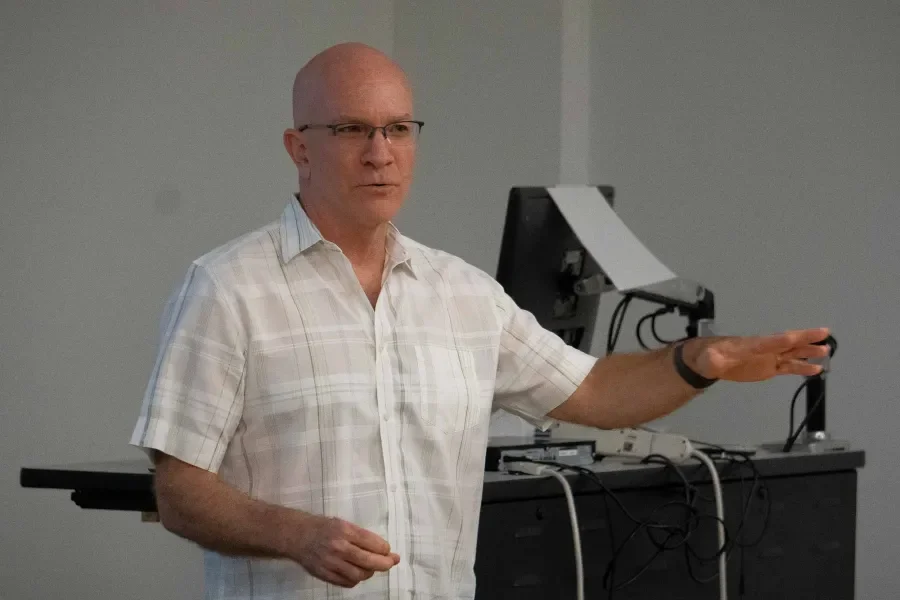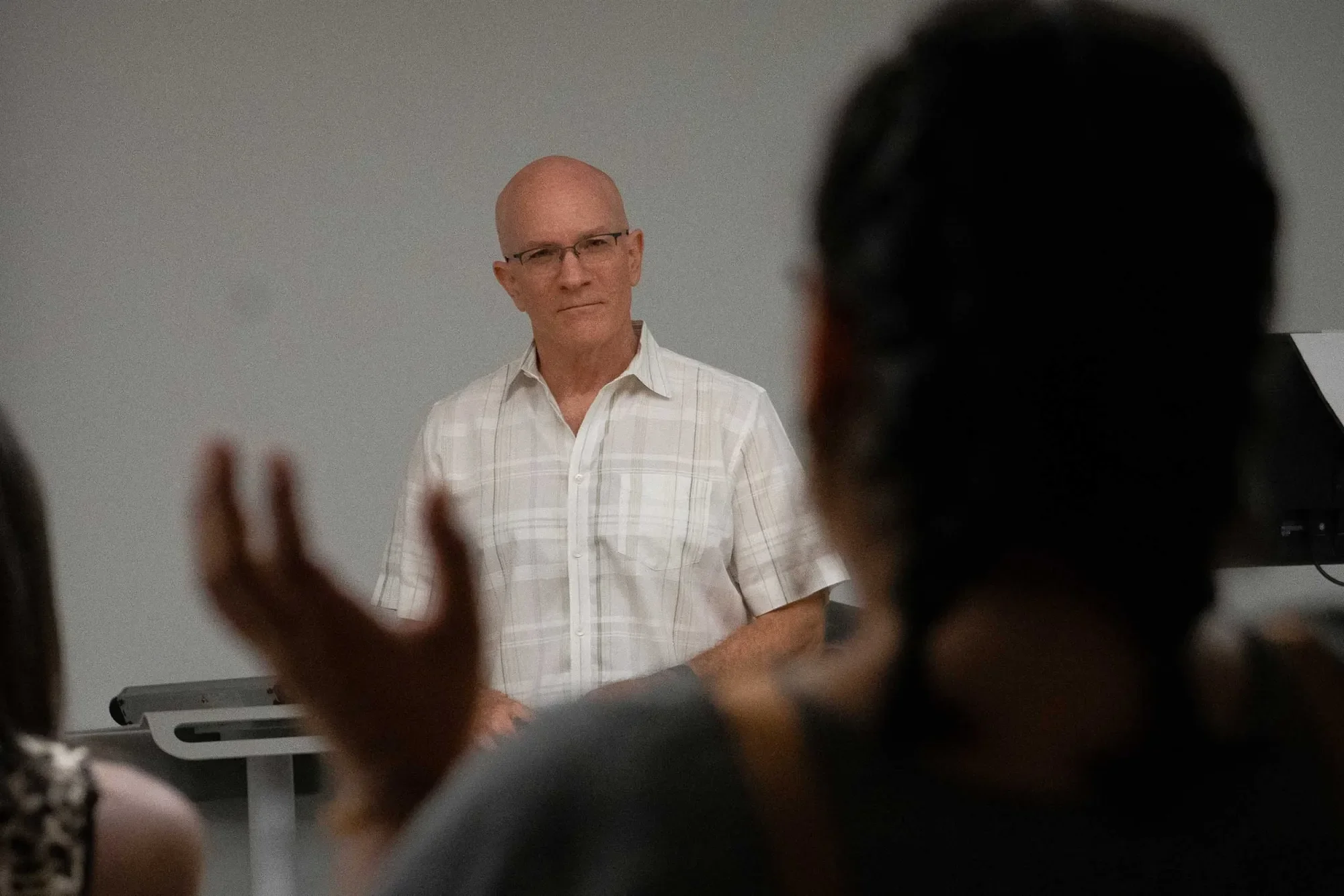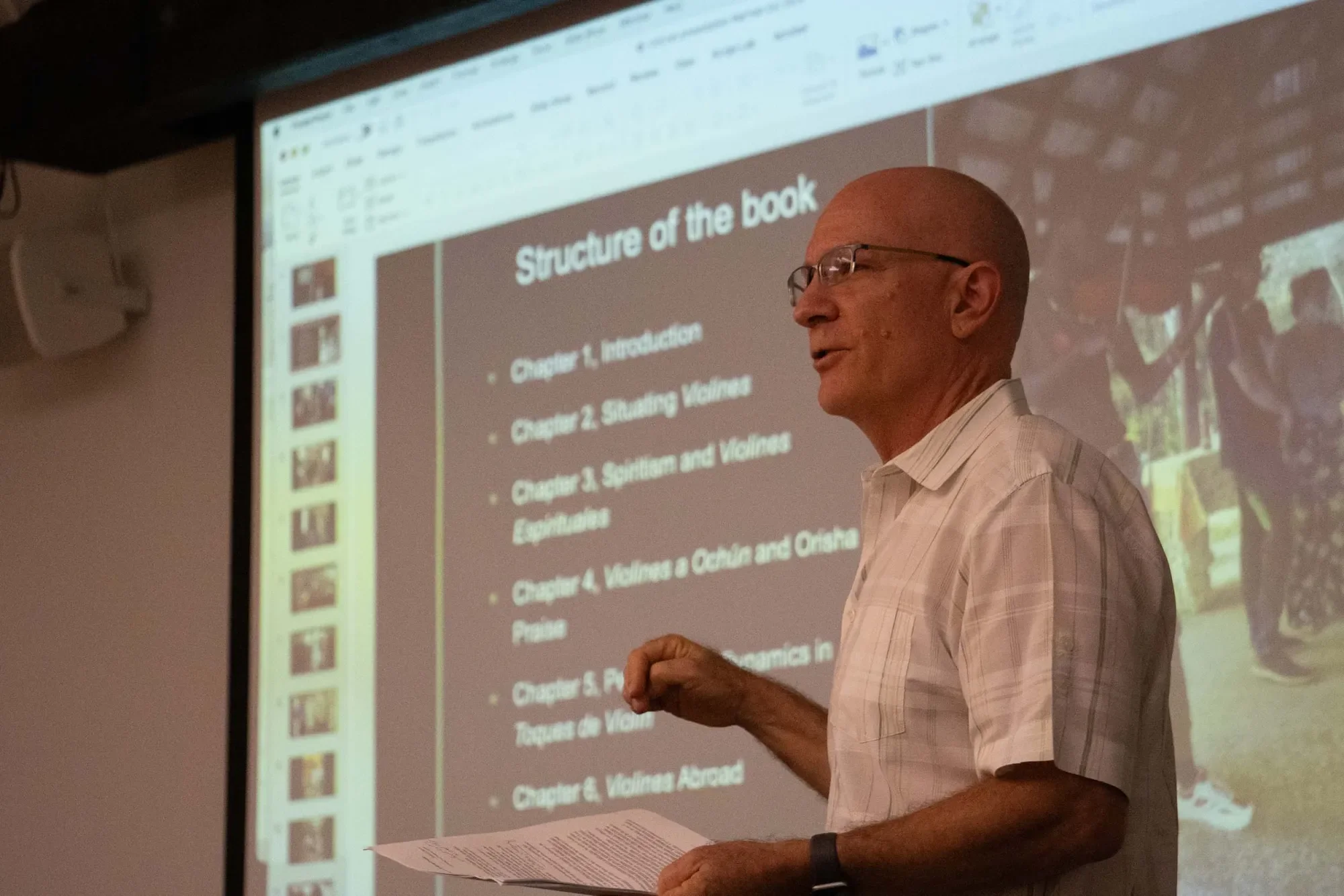October 14, 2024

Recently Professor of Ethnomusicology Robin Moore presented a lecture titled "Toques de Violín: Expansive Afro-Cuban Religious Music and Devotion" at the Black Studies Collective at the University of Texas at Austin. The talk, based on his forthcoming book, delved into the intricate world of Afro-Cuban religious music.
Moore opened the discussion by contrasting traditional African drumming with a newer genre that incorporates European instruments such as violins and guitars. Traditional African drumming which he describes as "fiercely conservative, holding onto African memories” does not use these European instruments, and drumming sessions often last 5 hours or more and are used for religious purposes. Moore highlighted the challenges of researching traditional religious music, noting that it often involves rituals of trance or possession and for that reason, photography and filming are not allowed.

Robin Moore listens as an audience member asks about different types of instruments used in Cuba
Since the 1970s, a new musical form has emerged in Cuba that blends traditional African elements with popular, church, and classical music. Known as "toque de violín," this genre features violins and is notably shorter than traditional drumming sessions, lasting only a couple of hours compared to the extensive five-hour durations typical of their predecessors.
Moore explained that this contemporary form of Black religious music emphasizes the veneration of Afro-descendant deities, utilizing instruments like the violin and guitar, which are more commonly associated with popular music. He noted that the incorporation of violins can be seen as both a concession to Eurocentric aesthetics and a process of cultural creolization.
Examples of Cuban Religious Drumming
Despite its innovative blend, some within the Black religious community critique the toque de violín for its perceived European influences, arguing that it strays too far from traditional African roots. Yet Moore emphasized the complexity of this music, which requires performers to have a deep understanding of various religious traditions, including Catholicism, traditional African religions, and elements from other faiths such as Islam.

Robin Moore outlines the upcoming book
Moore’s book is due to be published soon by Cambridge University Press.
The Black Studies Collective at UT Austin, a unique initiative in the realm of Black studies, draws on the strengths of multiple campus units, including African and African Diaspora Studies, the John L. Warfield Center for African and African American Studies, the Institute for Urban Policy Research & Analysis, and the Art Galleries at Black Studies.

